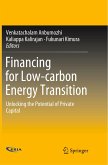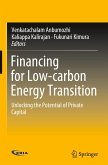This book tells the story of one nation's sustained efforts to steer its economy toward low carbon technologies and to define national and global pathways for mitigating climate change. Drawing on a long career in Germany's energy sector, and on subsequent academic research, the book reveals the weaknesses of and critical trade-offs in Germany's bold energy transition plan - the Energiewende - and explores their causes.
Its goal is to provide insights to help policymakers and energy managers keep some of the problems that have plagued the Energiewende at bay, and to instead explore avenues that are more likely to succeed. While such insights cannot solve the problem of socio-technical change overnight, they do reveal alternative transition pathways that keep climate goals clearly in sight, even if they are pursued with a bit less exuberance and a bit more humility. The book is addressed to academic, professional, and political readers alike.
Its goal is to provide insights to help policymakers and energy managers keep some of the problems that have plagued the Energiewende at bay, and to instead explore avenues that are more likely to succeed. While such insights cannot solve the problem of socio-technical change overnight, they do reveal alternative transition pathways that keep climate goals clearly in sight, even if they are pursued with a bit less exuberance and a bit more humility. The book is addressed to academic, professional, and political readers alike.








